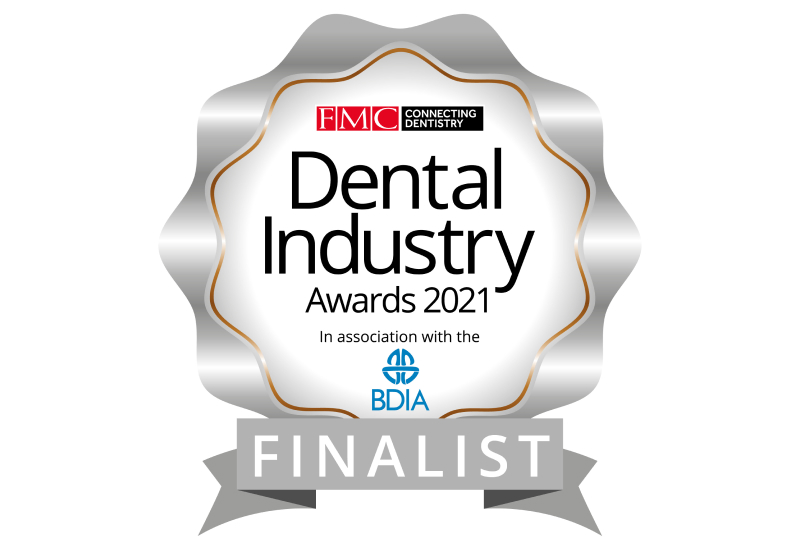The UK dental sector has been a consistent target for private equity, with consolidators reshaping how practices grow and operate. In recent years, rising costs, staffing challenges, and a shift toward private care have changed how value is built and measured.
Now, with Bridgepoint’s re-entry into the sector through its acquisition of MyDentist, the market has received a strong signal about how private equity is currently valuing dental assets.
The deal, reportedly valued at around £800 million for a business generating £74 million in annual EBITDA across 600 practices, is notable not just for its size, but for what it suggests about current expectations around growth, value creation, and deal multiples.
In this article, we break down the deal’s key numbers, compare it with past transactions, and explore what it means for dental business owners across the UK, particularly those building toward a sale or looking to scale.
MyDentist: Key Financials and Deal Metrics
Here’s a snapshot of what’s publicly known about MyDentist’s financials:
- Annual Revenue: ~£562 million
- Annual EBITDA: ~£74 million
- Number of Practices: ~600
- Inferred EV/EBITDA Multiple: ~10x
This puts MyDentist’s acquisition firmly in the mid-range of typical private equity multiples. But when viewed in historical context, the current valuation sends a clear signal about changing market expectations.
Why the 10x Multiple Matters
The inferred 10x EV/EBITDA multiple paid by Bridgepoint for MyDentist is arguably the most instructive data point from this acquisition. It provides a clear reference for how the UK dental market is being valued today, particularly by large private equity firms.
In M&A terms, the EV/EBITDA multiple reflects what a buyer is willing to pay for a company’s earnings before interest, taxes, depreciation, and amortisation.
For mature, cash-generative businesses like dental groups, this multiple is often used to benchmark deal pricing and future exit potential.
Historically, premium dental groups have fetched EBITDA multiples well above 12x, especially when:
- Demand for dental assets was high,
- Debt was cheap,
- And consolidation opportunities were relatively untapped.
But a 10x multiple at this scale signals that even top-tier operators are now being valued with greater discipline. This has direct implications for dental operators across the market.
Downward Pressure on Smaller Group Valuations
Dental groups generating £1m–£5m in EBITDA cannot reasonably expect to attract multiples in that same range unless they bring something unique to the table. This could include:
- A dominant private payor base
- Specialised treatments (e.g., implants, ortho, cosmetic)
- Highly efficient operations
- Exceptional clinical leadership or brand reputation
Without these differentiators, buyers will apply a discount, often valuing such businesses at 5x–8x EBITDA depending on risk, growth, and integration potential.
More Emphasis on Margin and Operational Quality
It’s no longer sufficient to focus on gross revenue or the number of practices. Buyers are now scrutinising:
- EBITDA margins (as a % of revenue)
- Cost structures and headcount efficiency
- Revenue per chair or per clinician
- Private-to-NHS revenue mix
- Level of digital maturity and tech stack efficiency
A smaller dental group might have £2m in revenue, but if margins are tight and cost discipline is weak, its value will be significantly lower than a leaner operation delivering £500k EBITDA off the same turnover.
Valuation Arbitrage Strategies Are Back in Focus
Private equity buyers like Bridgepoint rely on valuation arbitrage to generate returns.
That means acquiring smaller businesses at lower EBITDA multiples (say, 5x–7x), integrating them into a larger group, and benefiting from the uplift when the group is valued collectively at a higher multiple (closer to 10x or more).
For vendors, the takeaway is this: unless you can grow EBITDA and demonstrate margin resilience before a sale, you’ll be priced as a bolt-on not as a platform.
Shift in Exit Planning Timelines
The new benchmark also affects exit timing. Many small-to-mid-sized group owners have built portfolios with the intention of exiting at double-digit multiples.
With 10x now considered top-of-market, some may delay exit plans to focus on margin improvement, digital enablement, and organic growth to make their business more attractive.
Alternatively, some may choose to exit sooner, accepting a lower multiple but securing a faster deal, particularly if market uncertainty persists.
Lenders and Valuers Will Adjust Expectations
It’s not just buyers who use EV/EBITDA multiples to assess risk, lenders, valuers, and insurers do too. A lower market benchmark means:
- Lower lending limits for acquisition financing
- More conservative business valuations during refinancing
- Greater scrutiny on forecast assumptions in business plans
Operators who are over-leveraged or banking on high-multiple exits should reassess their financial models considering this new pricing environment.
Bridgepoint’s Likely Playbook: How They May Add Value
Based on past strategy and current market realities, Bridgepoint’s growth and value-creation plan is likely to focus on three key areas:
Buy Smaller Practices at Lower Multiples
To achieve outsized returns, Bridgepoint will likely pursue bolt-on acquisitions at significantly lower valuations – potentially in the 5x–7x range. This arbitrage strategy – buy low, scale up, and increase group EBITDA – is a proven method in private equity.
For smaller groups, this means that unless they have premium metrics (e.g., high-margin private dentistry, strong digital infrastructure, or specialist services), they are unlikely to fetch anything close to a 10x multiple.
Optimise Existing Operations
Cost reduction and operational efficiency will play a major role. Expect investments in:
- Digital booking and triage systems
- AI-based diagnostics and treatment planning
- Centralised procurement and HR
- Workforce optimisation to tackle clinical recruitment issues
Margins will be key. Bridgepoint will likely aim to raise EBITDA margins to drive value organically from the existing base.
Greenfield Expansion
Starting new practices in underserved or growth-potential locations may also be part of the strategy. These can be structured with better cost controls and optimised workflows from day one, boosting group performance over time.
What This Means for Smaller Dental Groups
For independent practice owners or small-to-mid-sized dental groups hoping to exit, this deal should serve as a wake-up call.
If a 600-practice group with £74 million EBITDA is being acquired at 10x, then smaller groups with £1m–£5m EBITDA are unlikely to command similar multiples unless they have a compelling differentiation story.
Buyers will be more selective, placing greater weight on:
- Profitability (not just revenue)
- Recurring private revenue
- Operational efficiency
- Scalability potential
Ultimately, groups seeking higher valuations need to focus on improving margins and creating operational value, not just growing top-line revenue or footprint.
Final Takeaways
Bridgepoint’s return to UK dentistry with the acquisition of MyDentist signals confidence in the long-term fundamentals of dental healthcare while also establishing a new pricing reality for deals.
Dental group owners, investors, and operators should:
- Benchmark their own EBITDA multiples realistically
- Prioritise operational efficiency and margin expansion
- Invest in digital and AI tools to remain competitive
- Reassess growth strategies in light of current PE expectations
The landscape has changed and success in the next cycle will depend on how well businesses adapt to this new normal.
If your dental group is looking to grow, optimise, or prepare for a strategic sale, the right financial and operational guidance is critical. Get in touch with our team to explore tailored advisory solutions.
About the Author

Rajat Kumar
Rajat is a finance and marketing professional with years of proven experience working in finance and investment KPOs.
Working with Samera’s business development experts, he specialises in creating tips, reports and articles helping accountants understand the global landscape, strategise and grow their business.
Reviewed By:
Arun Mehra
Samera CEO
Arun, CEO of Samera, is an experienced accountant and dental practice owner. He specialises in accountancy, financial directorship, squat practices and practice management.

